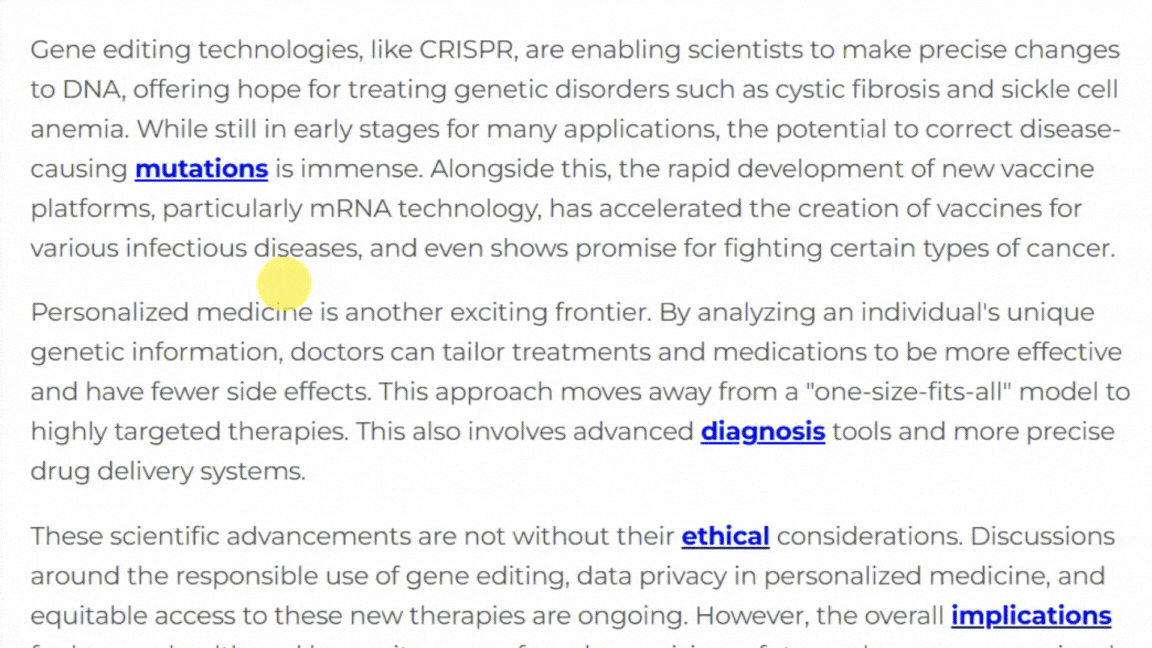Amber Talk
Enhance Your Conversation
- Login
- / Sign Up
Amber Talk
Enhance Your Conversation

Improve Your English Skills
Please enter your email to get more information on how to improve your English skills and to continue with the Article.

The Future of Vaccines
News Audio Player
Scroll Down For Speaking Practice
The field of vaccine development is undergoing a revolutionary transformation, moving beyond traditional immunization methods. Innovations are paving the way for more effective and versatile protection against a wider range of diseases. This exciting progress promises to reshape global health strategies, offering new hope for combating persistent and emerging threats.
A key innovation is mRNA technology. Unlike conventional vaccines that use weakened or inactivated viruses, mRNA vaccines deliver genetic instructions to our cells. These instructions teach the body to produce a harmless piece of a virus, triggering an immune response and building immunity. This method allows for rapid production and adaptability, crucial during pandemics.
Another significant area is the pursuit of universal vaccines. These are designed to protect against multiple strains or even entire families of viruses, like influenza or coronaviruses, with a single shot. This contrasts with current vaccines that often target specific, evolving strains, requiring frequent updates. Such broad-spectrum protection would simplify global immunization efforts.
Beyond these, researchers are exploring therapeutic vaccines, which treat existing diseases rather than preventing them, particularly in cancer and autoimmune conditions. Advances in delivery systems, like needle-free patches, also promise to improve vaccine accessibility and acceptance. These biomedical innovations represent a paradigm shift in how we approach disease prevention and treatment, moving towards a future of more comprehensive and adaptable public health.
Let's Talk About It!
- 1. How is vaccine development changing today?
- 2. What is the main idea behind mRNA technology in vaccines?
- 3. How does an immune response help protect us from disease?
- 4. What is a universal vaccine, and why is it important?
- 5. How might global immunization efforts change with new vaccines?
- 6. What are therapeutic vaccines, and how are they different?
- 7. How can new delivery systems improve vaccine accessibility?
- 8. What do biomedical innovations mean for the future of health?
- 9. What does "paradigm shift" mean in the context of vaccines?
- 10. How do you think these advances will impact public health?
Article Vocabulary Instructions
Click to Enlarge
